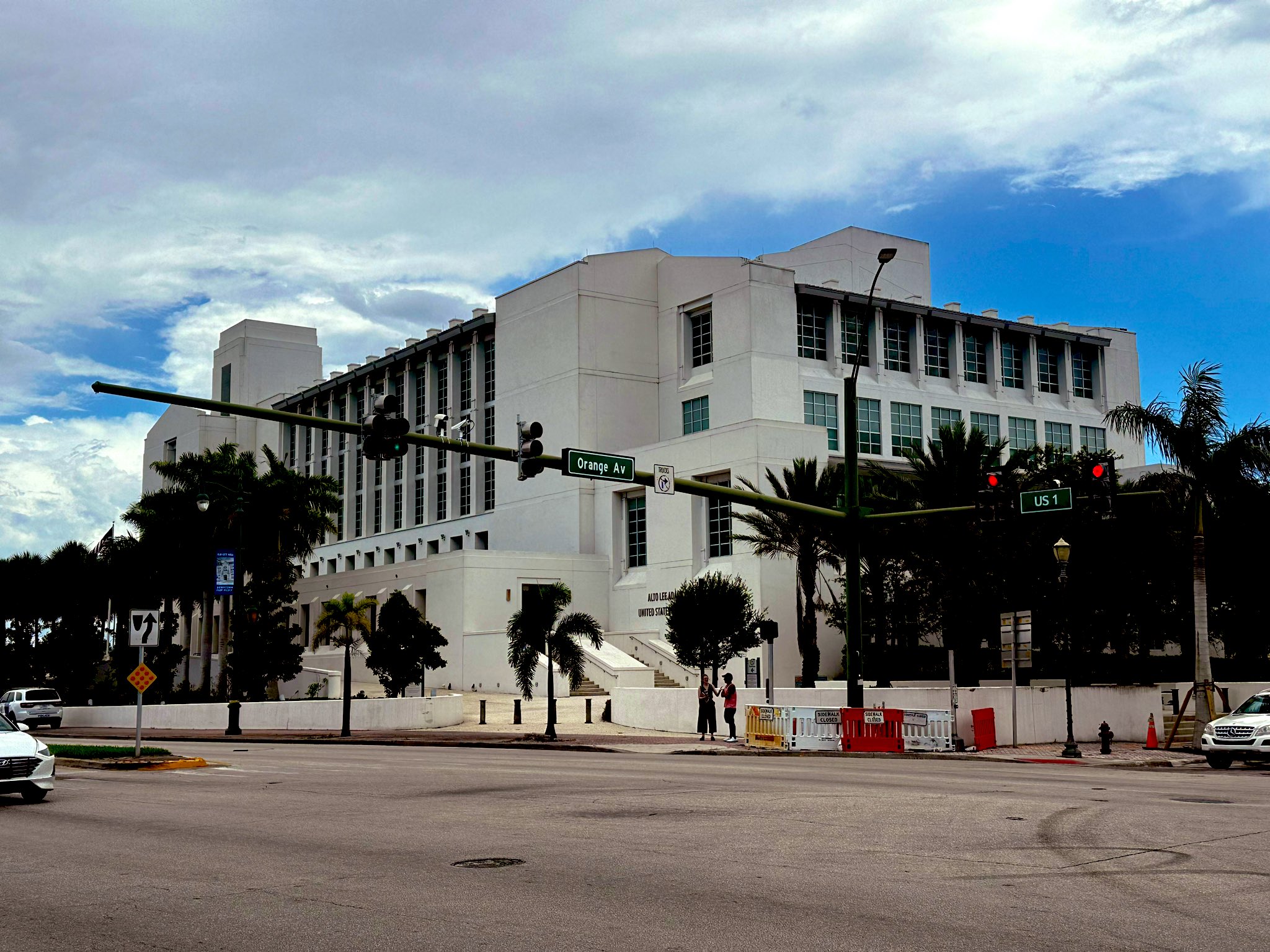Today's Headlines and Commentary
An American woman is dead and five others are injured after a Norwegian man of Somali origin attacked them with a knife in London. Police described the incident as a “spontaneous attack” and said the 19 year-old man showed no prior signs of radicalization. Instead, they cited mental health issues as the likely cause.
Published by The Lawfare Institute
in Cooperation With

An American woman is dead and five others are injured after a Norwegian man of Somali origin attacked them with a knife in London. Police described the incident as a “spontaneous attack” and said the 19 year-old man showed no prior signs of radicalization. Instead, they cited mental health issues as the likely cause. The Wall Street Journal highlights that the attack took place at Russell Square, near one of the sites of the July 7, 2005 terrorist attacks that collectively claimed 52 lives and injured hundreds more. The Guardian has more.
The British-based Syrian Observatory for Human Rights says that Syrian government forces backed by Russian air strikes have recaptured hills and villages from rebel groups on the outskirts of southwestern Aleppo. A government counteroffensive against recent rebel gains around Aleppo began on Sunday and has already killed 40 civilians, including 22 children. According to Physicians for Human Rights, over the past week, the Syrian government has launched airstrikes targeting six hospitals in and around the contested city.
The New York Times underscores the logistical challenges facing a U.S.-Russian partnership in Syria against the Islamic State and the terrorist organization formerly known as Jabhat Al Nusra. Nusra has been an effective fighting force against the Syrian government and is considered especially difficult to strike because its fighters often coordinate with other rebel groups. Rebel groups in Syria often find themselves in a harsh dilemma: Nusra will destroy those who refuse to work with it, while the Russian government considers any force allied with Nusra as a legitimate target.
The Associated Press reveals that Jan Egeland, an advisor to the UN’s special envoy to Syria, lamented the United Nations’ inability to reach its target levels of assistance in war-torn Syria. Egeland said only 40 percent of planned humanitarian assistance reached Syria in June and July, noting that the UN had fallen well short of its goal of assisting 1.2 million people.
Reuters reports that Turkey has detained 20 suspected Islamic State operatives in the southern city of Adana on Thursday. The arrests came after a number of simultaneous raids by Turkish law enforcement officials. The so-called caliphate controls a piece of territory on the Syrian border east of Adana.
The Washington Post profiles Fetullah Gulen, the aging, Pennsylvania-based cleric who has been accused by Turkish President Recep Tayyip Erdogan of masterminding the recent coup attempt in Turkey. A former ally of Erdogan’s, Gulen has been accused of leading a secretive faction of Islamists who have spent years infiltrating the judiciary, civil service, military, and other key elements of Turkish society. But others have rejected these claims as evidence of Erdogan’s paranoia and an opportunistic attempt by his ruling party to consolidate power and punish their political enemies.
The Taliban attacked a group of tourists on a sightseeing adventure tour of Afghanistan on Thursday. The tourists were accompanied by a military escort in Herat city. According to a military spokesman, the attack wounded at least six people, including the Afghan driver and five tourists. The party had gone to Afghanistan with Hinterland Travel, a small British tour operator that specializes in adventure tours to war-torn countries. The Guardian has more.
The Journal writes that officials in the Department of Justice objected to providing Iran with the first installment of a financial settlement at the same time that Iran released four Iranian-American detainees, out of concern that Iran would consider the payment to be a “ransom.” But both U.S. government officials from the State Department and White House and a number of Iran experts told the Post that the two deals were unrelated and purely coincidental. The Atlantic Council’s Barbara Slavin likened the news to a litmus test when she said, “Those who opposed the nuclear deal will call it ‘ransom’ and those who supported it will call it ‘compensation.’”
Reuters writes that the Pentagon will not pay Pakistan $300 million in military reimbursements after Secretary of Defense Ash Carter ruled that Islamabad has not taken sufficient action against the Haqqani network. The $300 million would have come from the Coalition Support Fund (CSF), a U.S. Defense Department program to reimburse allies that have incurred costs in supporting counter-terrorist and counter-insurgency operations. Pakistan is the largest recipient, and has received $14 billion through the CSF since 2002.
China is set to join an anti-terrorism alliance with Pakistan, Afghanistan and Tajikistan as a means of boosting coordination to ward off the growing threat of domestic Islamist militant attacks, reports Reuters. The move comes a week after China thanked Afghanistan for its support in fighting the East Turkestan Islamic Movement. China, meanwhile, has accused the U.S. of aiding separatists in Taiwan and Hong Kong who are “damaging China’s internal stability and harmony.” CNN has more.
The Hill reports that malware has been discovered in the Philippines’ justice department computer system. Antivirus firm F-Secure suspects China to be the “threat actor,” and claims that the information targeted by the hack all related to the recent arbitration proceedings over the South China Sea.
Samantha Power, U.S. Ambassador to the U.N., rejected North Korea’s claim that it had been provoked into its recent ballistic missile test by the U.S.’ decision to deploy anti-missile defense in South Korea, arguing that the anti-missile system was a defense against North Korea and that the notion “that there’s some predicate by anybody other than Kim Jong Un is… not grounded in reality.” Power said the Security Council could issue a condemnation against North Korea’s missile tests swiftly, though past condemnations against North Korea have taken days or weeks.
The Journal examines how Germany is grappling with whether to overturn a World War II ban on deploying soldiers at home in an effort to ward off domestic terrorism. The prospect of overturning the ban, which for 60 years has been taken to mean that only police can tackle domestic threats such as terrorism, comes after Chancellor Angela Merkel presented a counterterrorism plan last week that included training the army to assist police in facing a terror attack.
Two men have been arrested for their alleged involvement in the July 1 attack on a restaurant in Dhaka the AP reports. Bangladeshi police are investigating whether the men have ties to ISIS, which claimed credit for the attack that left 2o people dead.
Zeid Ra'ad Al Hussein, U.N. High Commissioner for Human Rights, called on President Salva Kiir’s government to prosecute South Sudanese security forces accused of raping and executing civilians during fighting that broke out in the nation's capital last month. Al Hussein also urged the Security Council to take “urgent action” to stop the violence. According to the U.N., at least 73 civilians have been killed in the fighting and at least 217 cases of sexual violence have been documented.
Abubakar Shekau, Boko Haram’s long-time leader who had reportedly been removed from his position by ISIS, issued an audio message claiming he is “still around,” writes Al Jazeera. The announcement of Shekau’s successor yesterday has been seen as a sign of desperation on the part of Boko Haram and an effort by the notoriously violent terrorist group to reinvent themselves, as the new leader stated that the group would cease targeting mosques and Muslim civilians.
The Post provides more details on the recent arrest of a transit police officer for Washington’s Metro system for material support for terrorism. The arrest marks the first instance in which a U.S. law enforcement officer has been accused of aiding a terrorist group. Nicholas Young had been monitored by the FBI since 2010, and communicated with an FBI informant who pretended to join ISIS in Syria. Believing that his acquaintance had reached Syria, Young purchased and sent him gift cards for mobile messaging services used by ISIS to recruit.
A former Islamic State recruit admitted in an interview with the Times’ Rukmini Callimachi that ISIS views America’s lax gun laws as “dumb” and considers radicalizing Americans an easy task, as recruits without prior records can buy guns on their own without a contact. The comment echoes uneasily amid current debates on gun control and terrorism in the United States.
On a similar note, the Post covers how an undercover congressional investigatory group was able to receive licenses from the Nuclear Regulatory Commission to purchase enough lethal radioactive material to build a “dirty bomb” capable of poisoning a major city. Though licenses from the NRC are meant to restrict access to such materials, the group found that obtaining a license through a shell company was strikingly easy—just as it was in 2007, the last time the group tried this exercise. Their conclusions regarding the NRC's "back door" are sobering at a time of high concern over domestic terrorism.
On Sunday, Thailand’s military junta will hold a national referendum on a new constitution that critics claim will weaken the power of elected officials while extending the military’s influence. Though the junta has portrayed the referendum as a crucial step toward restoring democracy, it has blocked opponents from campaigning against it and restricted news coverage of the matter. The Times has more.
ICYMI: Yesterday, on Lawfare
Benjamin Wittes evaluated the New Yorker’s story on why Obama has failed to close Guantanamo.
Ben also posted the latest Rational Security Podcast: The “Who Hacked My Ballot Box” Edition.
Email the Roundup Team noteworthy law and security-related articles to include, and follow us on Twitter and Facebook for additional commentary on these issues. Sign up to receive Lawfare in your inbox. Visit our Events Calendar to learn about upcoming national security events, and check out relevant job openings on our Job Board.



.jpg?sfvrsn=305723dd_5)


